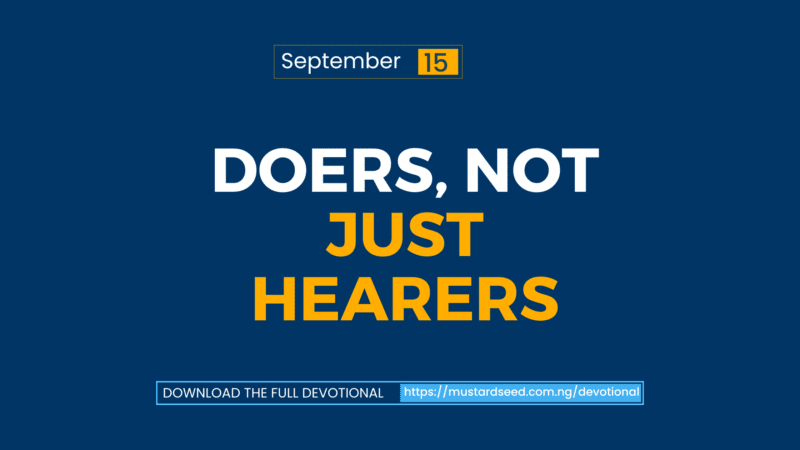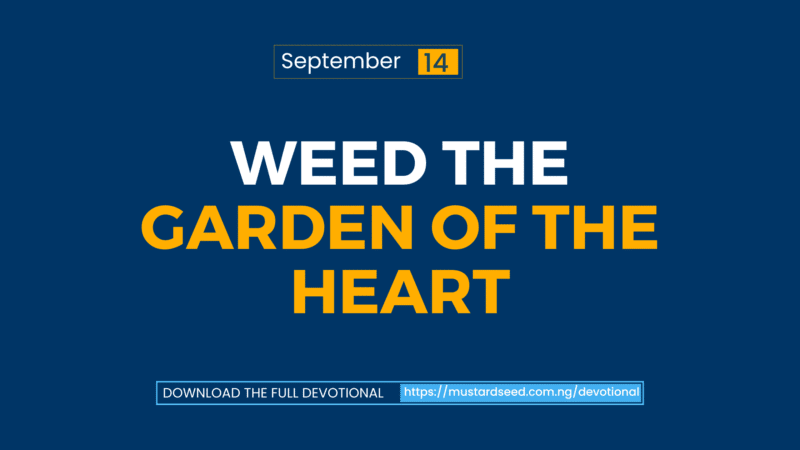Have you ever sat through a powerful sermon, nodded your head the whole time, maybe even said “Amen”-only to walk away and change absolutely nothing? James calls that self-deception. Hearing God’s Word is important, but it’s not enough. If the truth doesn’t move us to action, we’re just spectators, not disciples. Real faith responds.
Imagine trying to plant a beautiful garden in soil overrun by weeds. No matter how good the seeds are, the weeds will choke them out, stealing nutrients and space. James gives us a similar picture of our hearts. The Word of God is powerful and life-giving, but in order for it to grow and flourish in us, we first need to pull the weeds-the moral filth and sin that crowd our spiritual lives.
In a world where everyone is eager to be heard, James gives us a different challenge: be quick to listen and slow to speak. That’s not just good advice-it’s godly wisdom. So many conflicts, misunderstandings, and regrets could be avoided if we simply paused to listen first. But let’s be honest-this is easier said than done, especially when we feel strongly or want to prove a point.
When God wanted to show the world what He was doing in creation, He started with us. James says that God gave us new birth through the word of truth, making us a kind of firstfruits-the first evidence of a greater harvest to come. In ancient Israel, the firstfruits were the first portion of the crop offered to God, signaling more abundance on the way. That’s what we are in Christ: living proof of what God plans to do in and through all creation.
Have you ever had someone bless you with a gift at just the right moment-a word of encouragement, an unexpected check in the mail, or simply a friend who shows up when you needed it most? James reminds us that every good and perfect gift comes from above. Not some. Not most. Every good thing you’ve ever received is traced back to the hand of your heavenly Father.
Sin doesn’t show up wearing a name tag that says “Destruction.” It often enters dressed as a harmless thought, a small compromise, or a private indulgence. But James gives us a sobering look at the path sin takes: it starts with desire, moves to action, and ends in death. That’s the anatomy of sin-a slow, progressive erosion that begins in the heart.
We’ve all felt it-the pull to do something we know we shouldn’t. Whether it’s lashing out in anger, indulging a secret habit, or crossing a moral line, temptation knocks on everyone’s door. But when we fall, it’s easy to look for someone to blame. “God made me this way,” we say. “If He didn’t want me to fall, He could’ve stopped me.” James confronts that head-on: It’s not God’s fault.
Life can feel like a marathon some days, can’t it? The kind where your legs are tired, your heart is pounding, and quitting looks more appealing than finishing. James knows what it means to run a hard race. That’s why he reminds us: Blessed is the one who perseveres under trial. The blessing isn’t just in surviving the hardship-it’s in staying faithful through it.
On a warm spring day, wildflowers bloom with stunning beauty-vibrant, fresh, and full of life. But let the sun rise higher and hotter, and before long, those same flowers are wilted and gone. James uses this vivid image to describe the reality of wealth: it’s here today, gone tomorrow. Money and material success may look dazzling in the moment, but they can’t stand the heat of life’s trials-or the certainty of time.
e live in a world that loves status-job titles, Instagram followers, square footage. But James flips the script. He looks at those in “humble circumstances”-people who may not have much money, influence, or recognition-and tells them to boast. Why? Because in God’s eyes, they hold a high position. Their worth isn’t measured by what’s in their bank account, but by who they are in Christ.









